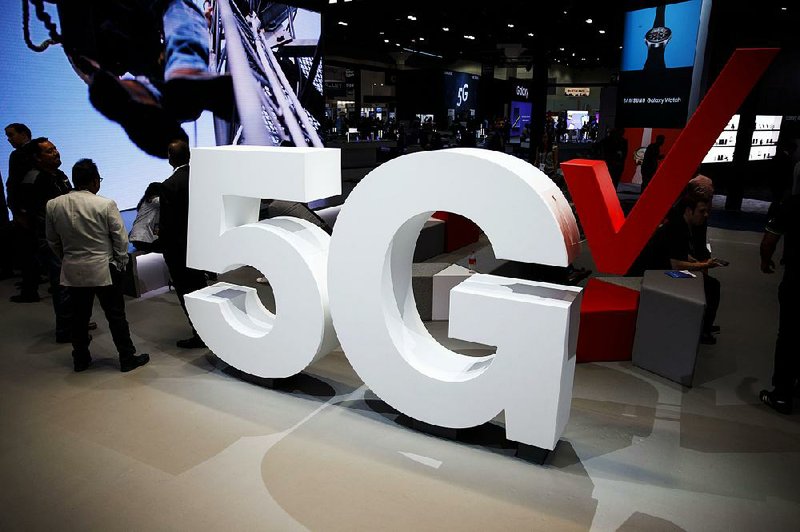Lampposts around downtown Los Angeles are being wired with fiber-optic cable and shoebox-sized gadgets to beam the fifth and fastest generation of cellular data, known as 5G, into homes and mobile devices.
This high-tech infrastructure build-out is the result of a deal between the city and Verizon -- Los Angeles gave the wireless carrier a break on the fees for taking up space on streetlights in exchange for a package of amenities and services.
Such arrangements are common nationwide, where local governments have long leveraged access to public property and rights of way as a bargaining chip to accomplish policy goals.
But late last month, the Federal Communications Commission took the unusual step of nationalizing public infrastructure for 5G installation, throwing Los Angeles' deal with Verizon and agreements between other cities and carriers into question.
The FCC established a maximum price of $270 that local governments can charge telecommunications companies for small-cell installations on public poles and in city streets. The agency also established what it called a "shot clock" mandating that permits for small-cell infrastructure be processed within 60 to 90 days, depending on the type of installation. If the permits take longer to process, the telecom companies can take cities to court.
Cities charging more than the maximum rate are open to litigation, and according to the ruling will have to prove that the higher fee is a reasonable approximation of costs.
Small-cell 5G technology relies on higher-frequency radio waves than current wireless services to deliver faster speeds -- but at shorter ranges. Those higher-frequency signals, which measure in millimeters, can be obstructed by objects of a similar size, such as leaves and raindrops. Twenty U.S. states have enacted legislation that streamlines regulation on 5G small-cell installation.
"There has never been a federal decision to price-regulate the way local governments provide access to their own property," said Blair Levin, a fellow at the Brookings Institution who served as chief of staff to the Clinton-era chairman of the FCC. "That's an extreme step."
The United States Conference of Mayors called the ruling "an unprecedented federal intrusion into local (and state) government property rights that will have substantial and continuing adverse impacts on cities and their taxpayers, including reduced funding for essential local government services, and needlessly introduce increased risk of right of way and other public safety hazards."
On Oct. 2, Seattle announced plans to appeal the decision in federal court.
"This is more than just an unfunded mandate, requiring us to do something without paying for the cost," said Seattle City Attorney Pete Holmes. "This is more like a taking, frankly, without due process and without compensation. Cities have property rights, and that has really just been thrown out with this ruling."
The FCC says the new rule will save money for telecom companies, which will redirect those funds to deploy 5G service to less-connected rural areas.
Industry experts dispute this hypothesis -- and leading telecoms say rural areas are not their first priority for 5G service.
"No one believes that's going to happen," said Levin. "Inside the Beltway, they say if they save them a buck in New York they'll go deploy in Montana. That's not just dumb, that's a special kind of stupid."
The FCC did not respond to a Los Angeles Times request for comment.
Business on 10/09/2018
